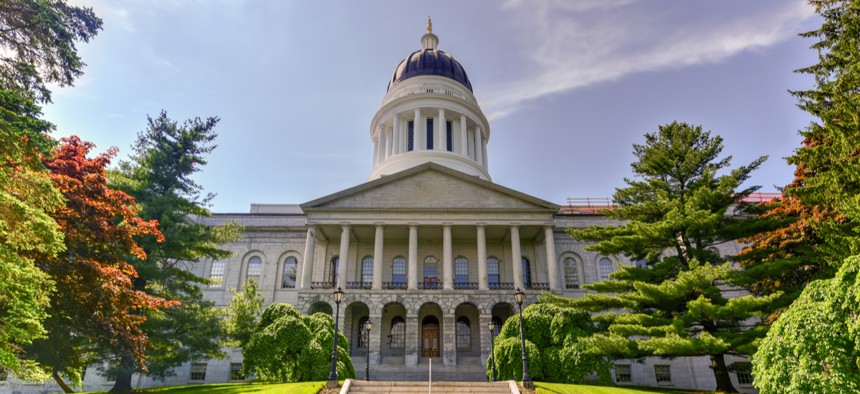State Prohibits Schools From Using Native American Mascots

The bill, titled "An Act To Ban Native American Mascots in All Public Schools," passed the Maine Legislature unanimously. Shutterstock
Maine became the first state in the country to outright ban schools from using Native American mascots and imagery, though other states have passed similar, less strict measures.
Native American imagery and likenesses can no longer be used as mascots at Maine’s public schools under a bill signed into law last week by Gov. Janet Mills.
“While Indian mascots were often originally chosen to recognize and honor a school’s unique connection to Native American communities in Maine, we have heard clearly and unequivocally from Maine tribes that they are a source of pain and anguish,” Mills said in a statement. “A mascot is a symbol of pride, but it is not the source of pride. Our people, communities, and understanding and respect for one another are Maine’s source of pride and it is time our symbols reflect that.”
The bill (“An Act To Ban Native American Mascots in All Public Schools”) prohibits public schools, colleges and universities from using “a name, symbol or image that depicts or refers to a Native American tribe, individual, custom or tradition” as mascots, nicknames, logos, letterheads or team names. Lawmakers passed the bill unanimously. The law takes effect 90 days after the state legislature adjourns.
There are four federally recognized tribes in Maine, including the Aroostook Band of Micmacs, the Houlton Band of Maliseet Indians, the Passamaquoddy Tribe and the Penobscot Nation.
The wholesale ban is the first of its kind in the country, though legislators in Massachusetts are considering a similar measure. Other states have previously enacted less binding provisions. In California, for example, the Racial Mascots Act prohibits public schools from using “Redskins” as a team name, mascot or nickname—but schools that purchased “uniforms or other materials bearing the term” before the law went into effect were allowed to continue using them. In 2012 in Oregon, the state Board of Education decreed that public schools using Native American mascots or team names had to replace them or risk losing their funding. Two years later, state officials passed a law that allowed schools to continue using those mascots as long as Oregon’s federally recognized tribes approved.
The American Psychological Association in 2005 called for the “immediate retirement” of Native American mascots and symbols, saying they “undermine the educational experiences of members of all communities, especially those who have had little or no contact with indigenous peoples.” The imagery also reaffirms racist stereotypes and can create a hostile learning environment for Native American students, the association said.
While historic, Maine’s law is unlikely to affect many schools. At the beginning of this year, only one school—Skowhegan Area High School—still had a Native American mascot (the Indians); the school board voted in March to get rid of it. That same month the Maine Department of Education urged schools to stop using such mascots, but schools did not have to comply without a law in place.
Still, tribal representatives praised the move, saying it finally tore down the longstanding argument that the use of racial mascots was meant to “honor” indigenous tribes.
“The argument has always been that ‘we are honoring you,’” James Francis, Penobscot Nation’s tribal historian, said in a statement. “By passing this legislation, the state of Maine is truly honoring Native Americans.”
Kate Elizabeth Queram is a Staff Correspondent for Route Fifty and is based in Washington, D.C.
NEXT STORY: The Disparities In Investment Found Across One City’s Neighborhoods





